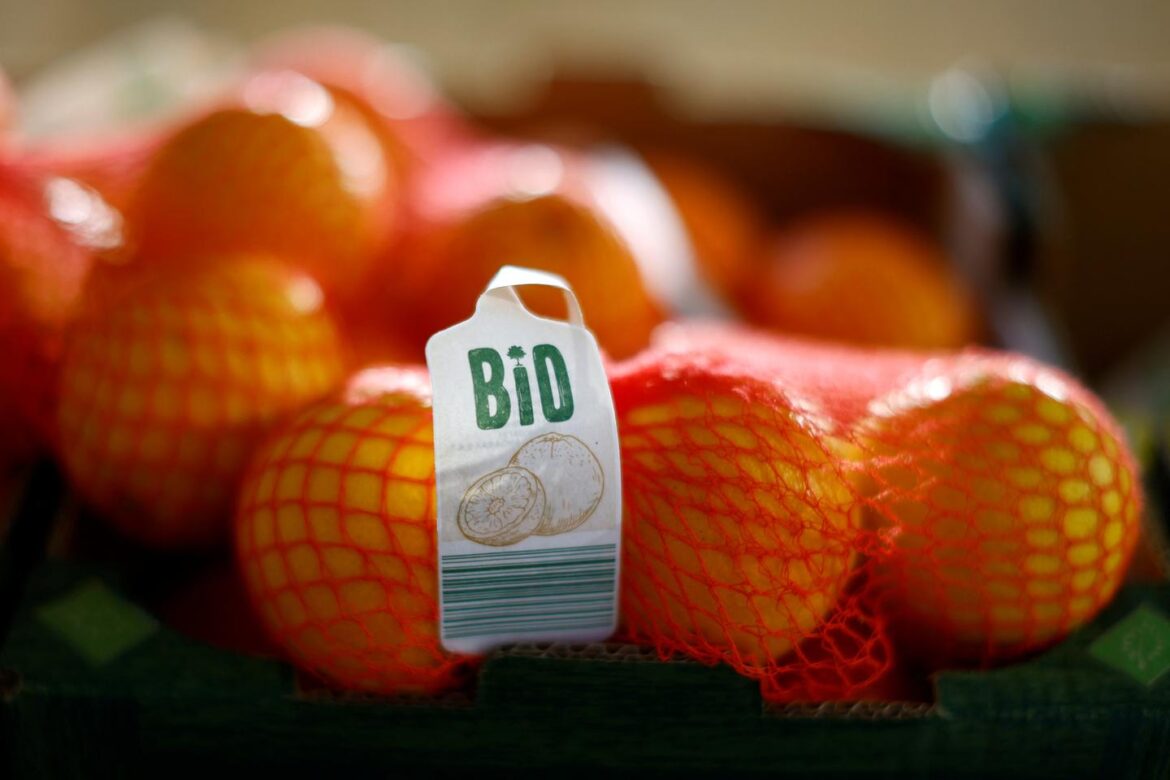The French continue to reduce their purchases of organic products. After the sudden halt at the end of 2021 and the sharp slowdown in 2022, the downward trend has continued since the beginning of 2023. Between January and July, sales of foodstuffs produced without chemical fertilizers or synthetic pesticides plunged by 13% in volume terms in supermarkets, according to the Circana institute. The decline in value was limited to 2%. Unsurprisingly, this market is suffering from the choices of French consumers, faced with unprecedented inflation.
With food prices soaring on supermarket shelves this summer − with a 20% increase over two years − customers are trying to cut down on their spending. The move down-market is clear. While store-brand and off-brand products are gaining market share, the white leaf on a green background (representing organic produce) is becoming less popular. As a result, in 2022, the share of organic produce in the French diet fell from 6.4% to 6%, and the negative trend is expected to continue.
However, the search for the lowest price is not the only reason. “Inflation is a convenient excuse,” said Laure Verdeau, director of Agence Bio, a public body responsible for coordinating the organic ecosystem. Referring to “the affluent classes who have the means and have turned away from organic,” she points to deeper reasons, namely that “mistrust and ignorance have taken root in the minds of consumers.”
‘It’s an emergency’
“We are suffering cruelly from this long-term inflationary trend. It has a strong psychological impact. People are turning away from organic products because of their reputation for high prices. Some producers no longer display the logo to avoid scaring customers away,” said Philippe Camburet, president of the French National Federation of Organic Farming. The reputation of high prices and competition from labels with much lower ecological standards, such as the misnamed “high environmental value” or “pesticide-free,” not to mention the promise of local produce or French origin, have blurred consumer perceptions.
You have 59.16% of this article left to read. The rest is for subscribers only.

